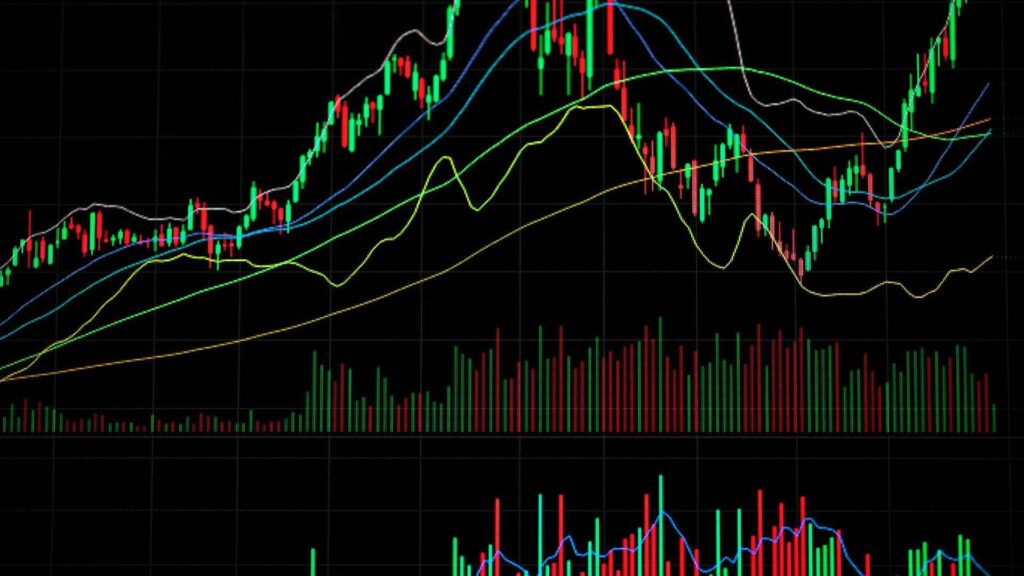News drives stock markets. And investors know this. Every piece of information that can rocket up or tank down the prices of specific shares or the stock market as a whole are usually covered in business newspapers. In this blog, we will cover what kinds of news have the maximum impact on stock markets as well as market volatility factors Commerce students should know.
If you are interested in careers that involve stock market analysis, this article is for you.
Economic Data Releases

Economic news and stock prices are linked intimately. Economic data releases, such as reports on:
- inflation,
- unemployment,
- interest rates, and
- GDP growth
are major market volatility factors. Thus, investors and businesses go through any economic reports released by the government or financial institutions carefully to gauge how they are going to affect:
- the overall economy,
- their sector or industry, and
- their organisation or investments.
Strong GDP growth, for example, is seen as a positive sign for the economy and encourages investors to put more money in the stock markets. So, the stock prices rise. On the other hand, weak economic data (such as rising unemployment or slowing growth of a sector or industry) can lead to fears about the future performance of the corporate. Hence, stock prices drop as a response.
Similarly, a cut in interest rates usually encourages borrowing and spending and boosts corporate profits. Hence,it drives up stock prices. Interest rate hikes, however, lead to a slow down in economic activity and cause stock prices to fall.
If you are interested in stock market analysis, you must understand the connection between economic news and stock prices. It is the key to predict stock market trends accurately.
Corporate Earnings Reports
Corporate earnings reports are keys to predicting stock market trends for a specific company or sector. All publicly traded companies have to release quarterly reports detailing their financial performance. These reports provide key insights into their:
- profitability,
- revenue, and
- future growth potential.
If a company puts forth strong earnings reports, it signals that its business performance is good and hence, its share prices are likely to rise. On the other hand, if a company has weak earnings reports, investors lose confidence in its future and its share price might fall.
Besides earnings reports, those who do stock market analysis also go through the forward guidance companies provide, which talks about how they might perform in the coming months. Positive guidance fuels optimism while negative guidance can trigger a market sell-off.
Political News and Events

Political news plays a critical role in driving stock market trends. Elections, government policy changes, and geopolitical tensions – all have a direct impact on stock markets.
A recent example of how political news impacts stock market trends can be seen in the 2024 Haryana state elections. The election results led to a shift in market sentiment, particularly affecting stocks tied to industries such as infrastructure, real estate, and agriculture, which are prominent sectors in Haryana.
When the ruling party secured a clear victory, the market responded positively, as investors anticipated continued economic and policy stability. Stocks related to infrastructure and government-backed projects in the region saw a boost due to expectations that ongoing initiatives would receive support under the same administration.
Geopolitical tensions, such as trade wars or military conflicts, are also major market volatility factors. For example, the Israel-Iran conflict news led to a market crash in India recently. The prospect of escalating conflict, especially with the involvement of Iran and Israel, caused panic in Investors as they feared potential disruptions in global trade, energy supplies, and increased uncertainty. It led to a major sell-off in the market tumbling down the share prices.
Technological Advances
Technological advancements also have a major impact on stock markets, especially tech sectors that rely heavily on innovation. Here are some recent stock market trends that caught the attention of stock market analysis professionals:
- Last year, Infosys announced increased investments in artificial intelligence (AI) which led to a positive response in the stock market. Infosys shares rose by approximately 4.5% in the week following the announcement.
- Tata Consultancy Services (TCS) announced an expansion of its cloud computing services and a major partnership with global firms to offer cloud solutions. It led to 5% surge in its stock prices.
- Zomato announced the integration of AI for optimising delivery times and improving customer experiences, particularly in the area of hyperlocal delivery services. The use of AI reduced its delivery times by 18% and improved its service ratings and investor confidence. It was not a surprise that Zomato’s stock increased by 8% after the announcement.
Global Events and Natural Disasters

The initial COVID-19 outbreak made the stock market trends around the world go crazy. In India, Sensex dropped by 38% in March 2020 because of the global economic slowdown, supply chain disruptions, business closures, investor panic, and government lockdowns and restrictions – all of which were key market volatility factors during this time.
A research paper by Pagnottoni et al., 2022 is crucial for those studying stock market analysis. It examines the impact on stock markets from natural disasters linked to climate change. Data shows varied market reactions based on disaster type and location, with European events causing stronger impacts. The study highlights how global events shape market behaviour.
Commodity Price Fluctuations
Changes in commodity prices are another key driver of stock market trends. Commodities such as oil, gold, and agricultural products have a direct impact on specific sectors. For example:
- Fluctuations in oil prices impact the energy sector directly. If the oil prices increase, production costs also rise and hence, transportation and manufacturing sectors also get affected.
- Similarly, changes in gold prices influence the mining sector. Also, gold often acts as a hedge during uncertainty in financial markets. Hence, investors monitor economic news and stock prices closely when gold prices rise during times of economic instability.
- Prices of crops and other agricultural products impact agriculture, food processing, and retail sectors. If the price of agricultural commodities rises, food companies’ production costs also rise and their profit margins are affected. Hence, their stock prices take a dip.
By analysing economic news and stock prices, stock market analysis professionals can predict the direction prices of specific shares might take – and respond to it accordingly.
Regulatory Changes
Finally, regulatory changes are among the important market volatility factors. Changes in laws and regulations, particularly those that impact specific industries, can lead to shifts in stock prices. For example:
- New environmental regulations can increase operational costs for companies in manufacturing or energy, potentially lowering their stock prices.
- Conversely, deregulation or tax benefits can provide financial advantages to companies, causing their stock prices to rise.
Staying informed about regulatory changes is an essential part of stock market analysis for students, as it helps predict shifts in stock market trends.
We can see how economic news and stock prices are closely linked to reach other and any big event (including natural disasters, geopolitical tensions, and even technological advancements) has an impact on stock markets.
If you are interested in stock market analysis or investment careers, you must cultivate the habit of reading news, especially business news, daily.
Read Also – How Lok Sabha Election Results 2024 Are Impacting the Stock Markets in India?
How to Optimise Inventory Management to Avoid ‘No Stock’ OR Waste?
Online Dispute Resolution In The Eyes Of Indian Law

